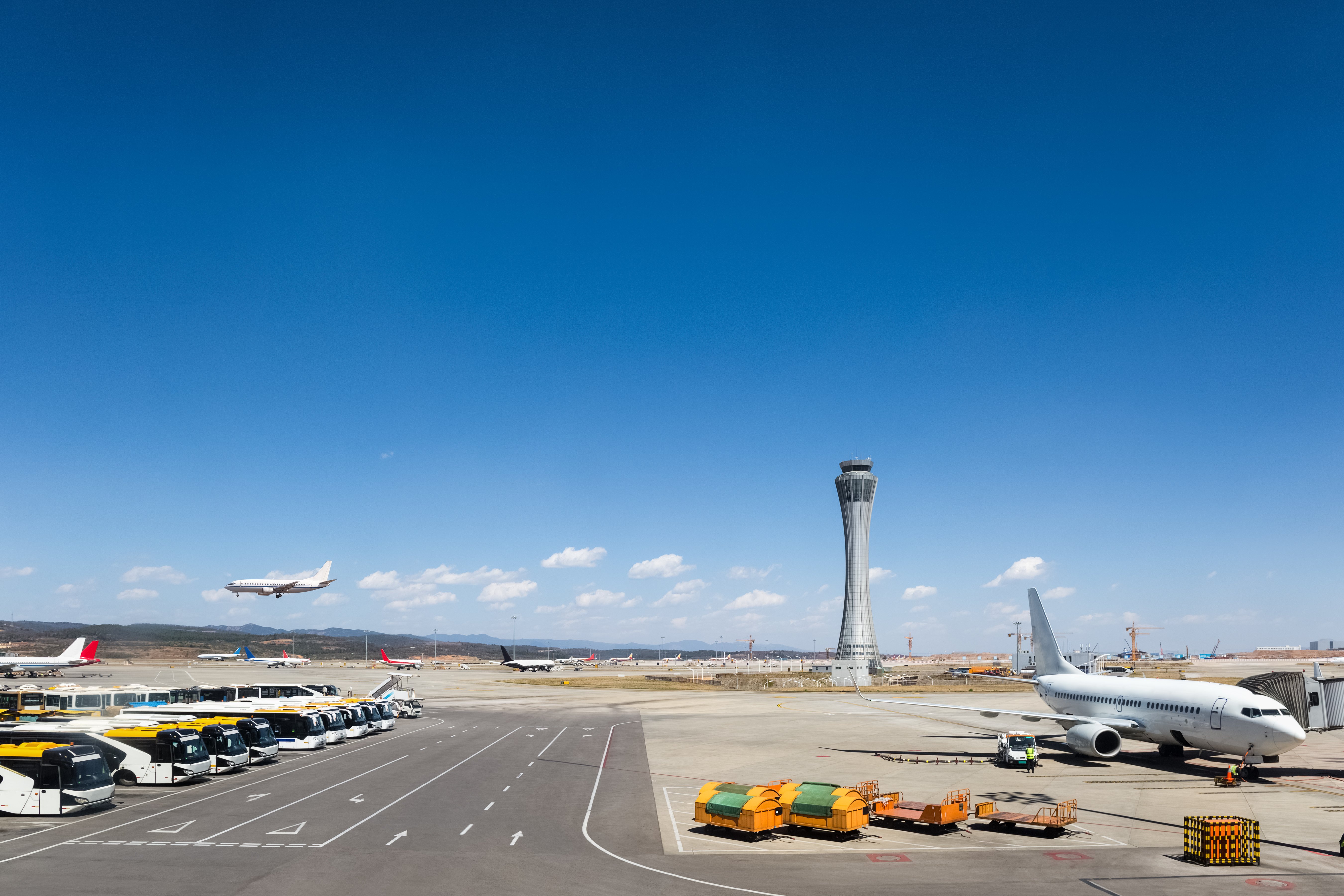According to the Central Statistics Office, 4.7 million passengers passed through Ireland’s five main airports in the first quarter of 2022.
This marks an eleven-fold increase in the same period in 2021. This is of course due to the widescale removal of Covid-19 travel restrictions and travel numbers still haven’t yet reached the same levels of travel as before the beginning of the pandemic.
However, the aviation industry is making a return to full strength and with that come many opportunities for jobs and competitive salaries in the aviation sector.
With that in mind, let us first look at some of the key skills that a bachelor’s or master’s degree in aviation management can teach you, and then some of the potential jobs that are available to an aviation management graduate.
What is the Role of Management in Aviation?
The role management plays in aviation is extremely important. In aviation management, passenger experience and safety are of paramount importance. There is an almost infinite amount of moving parts in the daily operations of an airline and airport. In order for them to run as smoothly as possible, they need university-educated, highly-skilled individuals to oversee their operation that can minimise risk and maximise efficiency.
What are the Key Skills Needed in Aviation Management?
- Financial – one of the core skills needed in aviation management jobs is the ability to manage an airline or an airport’s finances. This can include calculating financial feasibility for certain routes, allocating budgets in certain areas of the company, and having keen risk assessment skills.
- Leadership – In any kind of management degree, leadership is a central building block. This is no different in the aviation sector. Those entering the aviation industry are required to have strong leadership skills to be able to bring their section of the company forward effectively.
- Organisational – the aviation sector is perhaps one of the busiest in the world. Millions of passengers pass through thousands of airports with thousands of airlines each and every year. Airlines and airports have to operate as well-oiled machines with everybody knowing their role. This takes tremendous organisational ability.
- Strategic – strategy is an extremely valuable skill to a company. While daily operations take up a great deal of time and effort, companies in aviation always have to be planning ahead. This has never been truer than in the last two years. To plan ahead they need strong strategic minds that can plan out an effective roadmap for the future.
- Data – with any company, data is a key element used in how the company is run as well as forecasting for the future. Having personnel that can collect data, analyse it, and put it into a wider business and industry context is extremely important for companies in the aviation sector.

What Jobs are available in the Aviation Management Industry?
Upon graduation, you will have a variety of career routes available to you, both in Ireland, the UK and internationally.
You will be equipped for management and leadership within the aviation sector, which ranges from operational management and strategic planning to compliance and financial management. Some of the jobs you can hold within aviation management are:
- Airline operations management
- Airline finance and procurement
- Cabin crew management
- Airline strategy
- Air cargo management
Let's examine these in more detail.
Airline Operations management
This refers to how an airline is run on a daily, weekly, monthly, and yearly basis, at all levels of the airline. You will develop, implement, and monitor day-to-day operational systems and processes that provide visibility into goals, progress, and obstacles for an airline's key initiatives.
Building and maintaining relationships with all department heads, external partners, and vendors to make decisions regarding operational activity and strategic goals is also a key part of the role. You will work closely with human resources to lead a team with integrity and establish and maintain trusting, inclusive, and productive working teams while delivering a valuable service to the airline's many passengers.
Airline finance and procurement
This is how an airline manages its finances with procurement including acquiring the latest flight technology and can also include mergers with other airlines. You will drive confidence in numbers and provide insight into risks and opportunities.
You will also drive continuous improvements in the operational and financial processes. You will work closely with cost centre managers, providing necessary support and understanding of costs to ensure they are managed effectively.
Cabin crew management
This is how cabin crew is managed in terms of their schedules, making sure that cabin crew staff are allocated in the correct way across an airline’s routes.
You will build and manage a team of flight attendants, in accordance with the business requirements. You will also be responsible for training all flight attendants to ensure their client knowledge and service is to company standard.
Airline strategy
This refers to how an airline plans for the future through key strategic moves that allow the airline to grow and develop. You will be involved in the strategic planning and development to include key initiatives to enhance the delivery of services.
You will work with business leaders and technology leaders to ensure alignment of strategic priorities, key initiative launches and ensure initiatives are delivering the right outcomes. You will provide thought leadership, strategic planning, operational excellence, and a high level of accountability in developing and leading the enterprise.
Air cargo management
This involves the efficient and effective movement of cargo from area to area within an airport. It is important to understand the airport’s place in the supply chain. Many of today’s cargo items require special handling.
It is important to anticipate and integrate special facility requirements. You must be able to provide adequate personnel in the form of security, baggage handlers, and co-ordinators to ensure that cargo, either commercial or private, arrives at its destination on time.
Other areas of aviation management where you can work include:
- Passenger handling management – jobs under this title involve ensuring that passengers have the smoothest experience they possibly can while travelling
- Airline sales management – this is the management of the sales made by airlines such as flights and other travel packages
- Airline marketing management – this is how an airline markets itself to the public through marketing campaigns through both traditional media such as print, TV, and radio as well as new media such as social media
- Revenue management – this is money made by an airline is managed and put back into a business to ensure the progression of a company
- Engineering management – this refers to an airline's engineering needs including the maintenance of their fleet of aeroplanes
- Flight deck management – this is how the personnel working on the flight deck are managed such as pilot and co-pilot schedules and rotations
The specialist areas of aviation you can find jobs in include:
- Airline branding – this can refer to anything to do with the airlines brand such as brand logo and brand colours
- Airline IT support – this is anything to do with how the airline is run from an IT perspective
- Airline Corporate Legal services – this refers to how an airline is run from a legal standpoint, making sure that the airline is adhering to industry rules and regulations

How Do You Get a Job in Aviation Management?
The best way to get a job in aviation management is to hold a relevant qualification in the sector.
At Portobello Institute, we carry both a BSc (Hons) in Airline, Airport and Aviation Management and an MSc in Aviation Management where you can develop the skills mentioned above and make yourself a prime candidate for any of the roles we have discussed. View our travel and tourism department here.
Alternatively, if you hold a qualification in a related discipline, you can add another qualification on top of it to give your CV a more aviation-oriented edge.
Related disciplines include business, accounting, finance, and marketing.
By adding a qualification such as an MSc in Aviation Management, you will be fully equipped to enter the exciting and fast-paced world of aviation.
Get in Contact
If you are interested in any of our Travel and Tourism degrees, masters or qualifications you can book a consultation call with our expert advisor Brandon McLean here, email brandon.mclean@portobelloinstitute.com or call 01 892 0035. View our travel and tourism department here.
Get Insider Updates: Join Now!
Join our mailing list to receive the latest insights and exclusive content from your chosen department of interest



-1.png?width=1200&name=Michelles%20Blog%20Feature%20Images%20(13)-1.png)
-1.png?width=352&name=Michelles%20Blog%20Feature%20Images%20(11)-1.png)
-1.png?width=352&name=Fashion%20(15)-1.png)